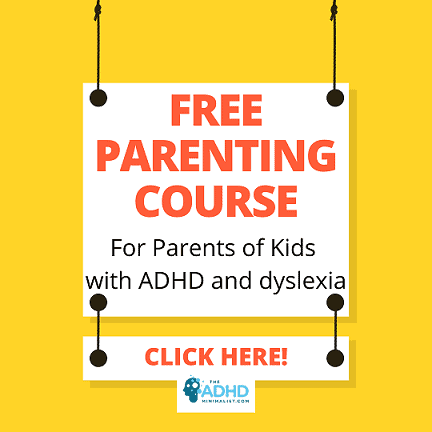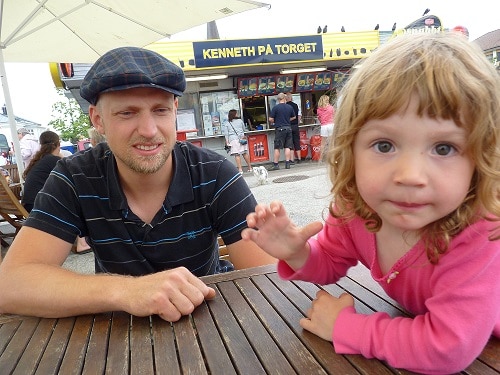
In order to help your children declutter you need to get your ducks in a row first!
Helping kids go through the mounds of stuff in their rooms is not easy. Make sure you are mentally prepared for the task before you get started.
1. Get over your own fears and anxieties.
When my son started minimizing his things he threw everything he didn’t want out in the hallway. When I saw what he was getting rid of I tried to convince him to keep the best things from his pile!
My son has ADHD and needs a calm structured environment to function at his best. All our extra clutter was driving him nuts!
Thankfully he didn’t back down, and I learned a very important lesson. The best gift I could give my son was to let him get rid of his things.
Just because I liked something did not mean that he liked it.
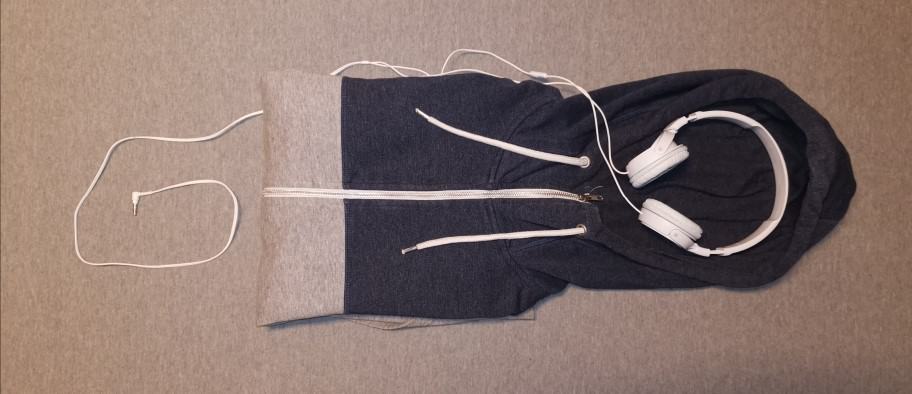
2. Realize your child may want to Discard expensive items.
You will have to come to terms with the fact that you (or other family members) bought your child too many clothes, toys, electronics, and things.
You will feel a sense of remorse for wasting money when your kids decide to discard items. This is normal. Don’t let it stop you from completing your decluttering.
Don’t worry your money wasn’t completely wasted. Hopefully, it will teach you what not to spend money on in the future.
3. Change your attitude from one of greed to one of generosity
Focus on how much joy your unused items can give to someone else.
If it’s Christmas time donate new or barely used items to charities that distribute them to children who would otherwise be without Christmas gifts.
The rest of the year give them to local second-hand stores.
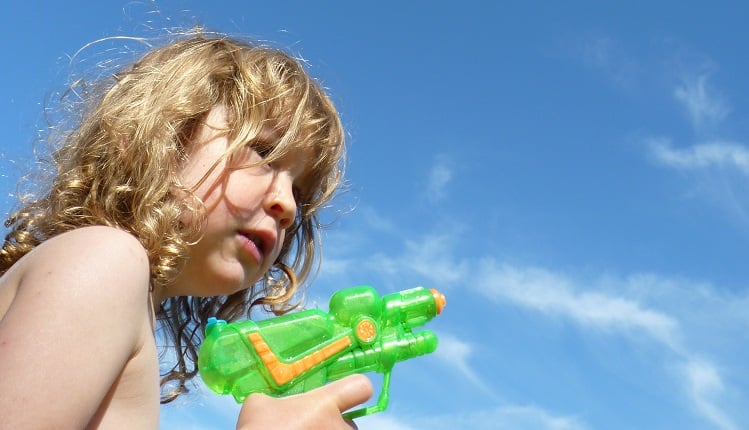
4. Trust your child’s intuition
My son is very particular about his clothes. He wanted to get rid of new clothes some of which he had never even tried on.
It was a learning curve for me to let these items go as well.
I had to bite my tongue when I found myself begging him to try things on just one more time!
My need to ‘Make sure’ he really wanted to get rid of things was hindering the whole process.
He never wore clothes he didn’t like. I knew this, but before we decluttered together I had not put this knowledge into practical action.
I spent years stuffing his closet with clothes he had already rejected!
The process went something like this; I would ask him if he liked an item of clothing I bought for him (Sometimes it was hand-me-downs from his cousin), Seventy-five percent of the time he would say no immediately or try it on and then reject it.
I would then proceed to hang the best of these rejected items in his closet anyway hoping he would change his mind!
Of course, he didn’t wear it! He would rather do laundry than wear clothes he doesn’t like!
Even after he purged his closet he still had enough clothes left to have a functional wardrobe.
His wardrobe decluttering did not cost me anything (except hurt pride). I actually gained time because I had less laundry to do!
On the rare occasion that he has nothing clean to wear in his capsule wardrobe, He does the wash himself.
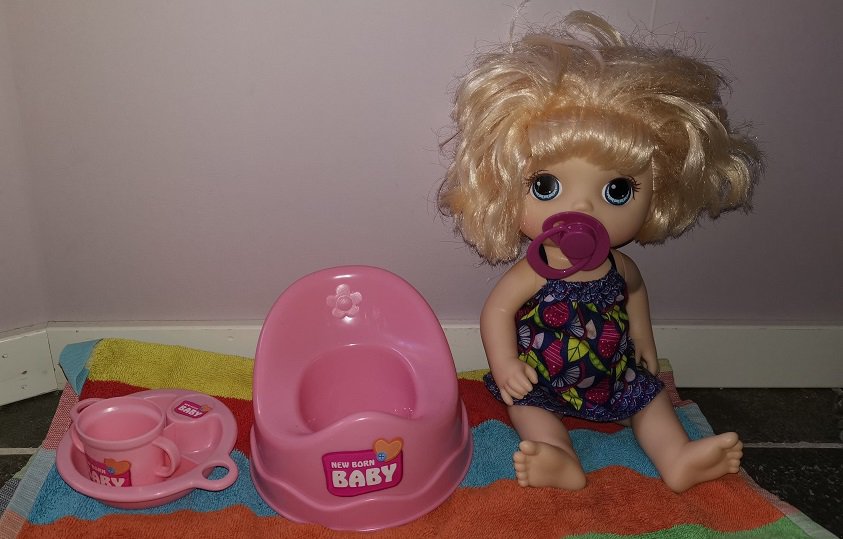
5. Let your child sell some of his/her toys.
If your child wants to sell some toys use this as an opportunity to teach him or her about how much work is involved in selling unwanted items.
This can be a good lesson that makes them think twice before impulse buying new things.
You can help smaller children mark toys and sell them in the front yard. Using this approach it’s often better to sell many things really cheaply. Other kids in the neighborhood will spend some of their own money on a few new toys if you price them right.
Your child will probably get enough money to buy one new smaller toy or save a bit of money toward a new expensive toy.
Older kids can be shown how to sell things on eBay. Make sure they know they are not at liberty to sell whatever they want without your approval.
My son asked me to help him sell some big-ticket items and expensive toys. He was not interested in helping. It takes a lot of time to sell things, so I agreed to sell them for him if we split the profit 50/50.
6. If you can’t live with the money you wasted sell the best 10 items.
If you spent a lot of money on items your child did not receive as a gift, like designer clothing or furniture they have outgrown, sell them on eBay. Your child will understand if you do not split the money into these items.
Usually, there is no point in trying to sell more than the 10 best items unless you are prepared to spend a lot of time selling or are willing to accept pennies on the dollar for your items.
Donate the rest to a thrift store. If you live in the USA ask for a tax-deductible receipt.
7. Children with short attention spans may need to make one big discard pile that you sort later.
Help your child go through his/her room and make one big pile with everything he wants to get rid of.
If it’s an older child they can probably do this by themselves.
Take the items out of your child’s bedroom and sort them.
This gives your son or daughter space to put the ‘keep’ items away and tidy up their room when they are in the flow.
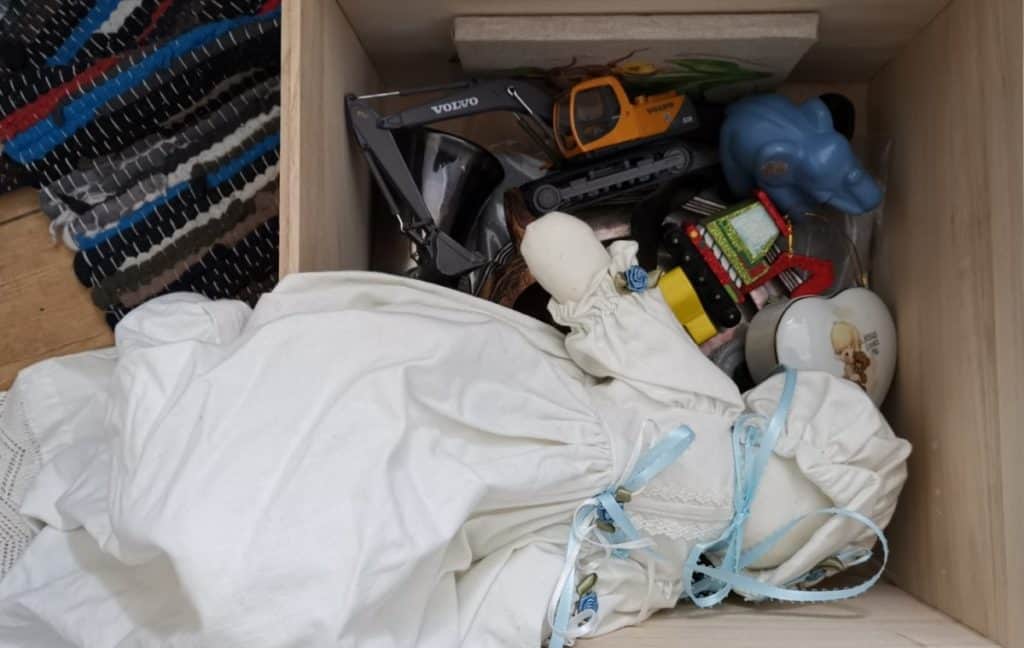
8. Discarded sentimental items you can save for your child
If your child discards important sentimental items you may save them for him/her. Don’t make a big deal out of this, quietly pick it out of the discard pile and box it up until the child asks about it.
Make sure it’s worth saving! Grandma’s costume jewelry or Grandpa’s pocket watch may be fun to have when they are grown.
If it’s broken get rid of it or take it to the repair shop in the next few days.
- Get a big plastic box for each of your children.
- Write sentimental items and their names on the boxes.
- All the sentimental items you keep have to fit in that box.
- When the box is full you must discard something in order to keep new things. Only keep the best!
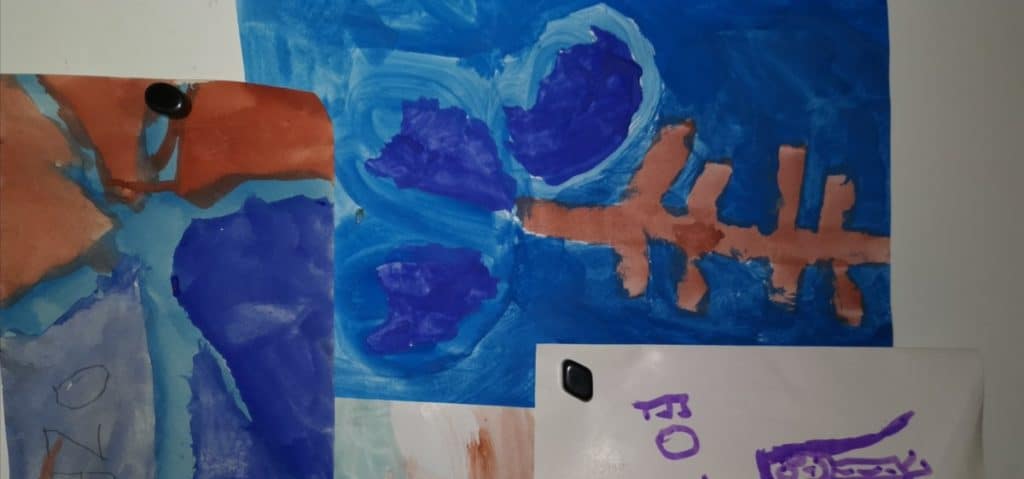
9. Take pictures of old art projects
If you can’t get rid of your child’s schoolwork and art projects take pictures of the best ones and make them a photo book using an app on your phone. (Chatbooks, PhotoBox, and Fujifilm are all sights I have used.)
I guarantee they will enjoy a book much more than loose papers when they are grown.
Take pictures while the art projects while they still look presentable. In the USA many kids’ preschool art projects are made of glued pasta!
Friends of mine found that their pasta projects had been eaten by bugs in their parent’s basement! Yuck!
Most grown children just throw away the schoolwork their parents saved. If you take the time to put the best pieces in a book then they just might keep it.
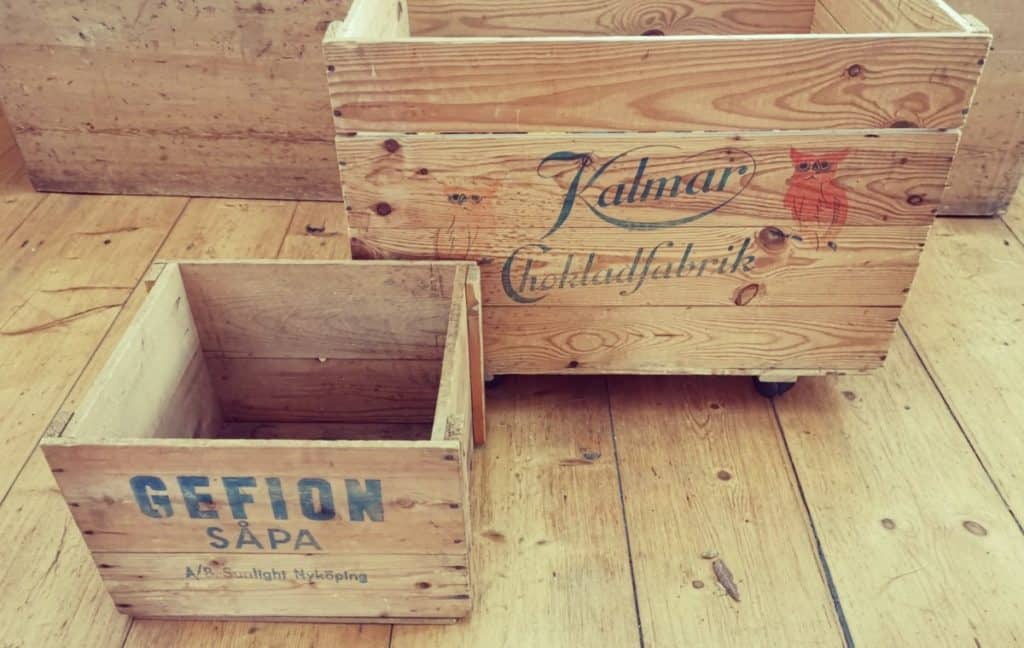
10. If you get completely stuck try my box method
- Group like items together in your child’s bedroom. Put all the clothes and shoes in one big pile, all the electronics together, all the art supplies together, and all the toys together. You get the idea.
- Get boxes that you feel give sufficient space to each category. The clothing and shoe box will probably be the biggest. The electronics box is perhaps the smallest.
- You (The Parent) decide the size of the box.
- Write the name of the category on the box for example Electronics.
- The box is a boundary. Your child may not have more items for a particular category than fit in the box.
- Let your child go through the piles and decide what to keep. They can either try Marie Kondo’s idea of keeping things that spark joy or they can keep things they know they like or use often. When the box is full everything outside the box goes to the thrift store!
The boxes do not have to be completely full. If your child is content with the items he has picked and the box is half full that’s great!
Try to get through their rooms quickly. Don’t let it drag on longer than three days.
Good Luck!
If you need more help minimizing check out my other posts. Click below.
Don’t make the same 10 minimizing mistakes I did!
Minimalism and ADHD with Kids
How to create a minimalistic, monochrome bedroom with easy-to-use storage (A Helpful illustrated guide)
If you have questions or comments please send an email to annie@theadhdminimalist.com.
For more information and reading, tips check out Our Favorite Resources Page. https://theadhdminimalist.com/our-favourite-resources/
Copyright Annie Eklöv

